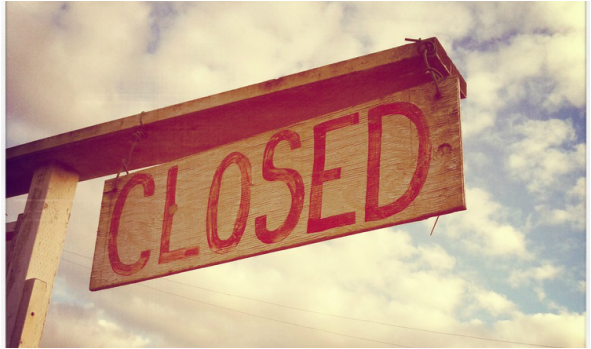|
The Emerald Cockroach Wasp, featured on an episode of Radio Lab, is able to essentially turn a cockroach into a zombie by stinging it in the brain with her venom. Once stung, the cockroach is under the wasp’s control. It is no longer master of itself, no longer what it once was. The cockroach is at the mercy of the parasite.
Obsessive Compulsive Disorder, Perfectionism and Anxiety can feel like parasites. Stress has shown again and again to be a leading cause of heart disease and other unpleasant physical ailments. There is no denying that these “disorders” and “problems” afflict many people and cause much damage. I see this every week in my counseling office. People worn down by worry, stress, and anxiety. I have even been that person. Feeling tired, scattered, confused and “not myself.” What lies hidden behind these pervasive symptoms is sometimes difficult to uncover. Like a garden weed, stress has a sneaky way of winding itself around the flowers in our lives, the things that truly matter to us. Our thoughts, expectations and values become compromised. It is only by unraveling the weed from the flower that you can ensure a bed full of beautiful, life-giving growth. Dialectical Behavior Therapy (DBT) helps us identify the thoughts and expectations that lie at the heart of our responses. We must slow ourselves down to catch these racing revelations. They speed through our heads day in and day out, leaving ideas implanted in our beings, swaying our actions, causing emotions to well up and make us feel out of control. I call them the “speed demons.” How crafty are our thoughts. Silently and stealthily informing our world when we don’t even consciously grasp that they are there. Yet, there is hope! We all have the ability to recognize their presence. If we slow ourselves down enough to practice getting to know them, we will begin to recognize these thoughts. We will begin to catch them like butterflies in a net. Examine them. Decide which ones to act on and let the others go. This is where our control as human beings lies. In the catching, examining and letting go. Our power lies in the ability to decide whether or not to act on the thoughts, expectations, perceptions and values that we find hanging around in our minds. OCD, Perfectionism and Anxiety “trick” us into having unrealistic and rigid expectations for ourselves, others and the world around us. They keep us stuck in ineffective ways of thinking, caught up in the “shoulds” and “should nots.” They numb us from acting on our true values and desires. Like the zombie cockroach, we become lost to our true selves, restricted and controlled by our minds. This week, ask yourself what distressing thoughts, expectations and perceptions seem to have a hold on you. Try to catch these thoughts as they come to you during the day. Become familiar with their presence. And, perhaps, choose to let go of them in the moment.
0 Comments
In 1982, Julie Moss crossed the finish line at an Ironman Triathlon on her hands and knees. Only ½ mile to go, her legs gave out and she was unable to continue moving forward on her feet. She had already swam 2.4 miles, biked 112 miles and run all but one half mile of a full marathon. In an interview on the NPR program Radiolab, Moss recalls that when she collapsed, a voice inside her told her to get up. She made a pact with herself in that moment to finish the race no matter what.
This story makes me wonder; what are we capable of if only we would believe in our ability to cross that finish line? Moss’s story reveals the inner struggle that all of us experience – the opposing voices within. One voice telling us to stop or to be cautious. The other voice telling us to keep going, to push ourselves. Signals from the body, the brain and the spirit do not always match up. Depression can magnify this internal struggle. Part of you knows that you must engage yourself in life and wants to, while the other part of you feels the urge to isolate and dis-engage. Most of us despise this contradiction. We just want to feel better, to rid ourselves of the feelings and thoughts that seem to keep us immobile. Julie Moss could have justified pulling out of the race when her legs gave way. After all, legs are somewhat essential when running a marathon. She could no longer control her leg muscles enough to finish standing up. Moss had to let go of the idea of finishing the race upright and find a new way to her goal, however untraditional. Although her body gave out and she faced the urge to quit, her determination won. She held a value and a goal so strong that it caused her to do the unthinkable. Our values and beliefs do influence our actions and decisions. Countless studies reveal that belief alone can change moods, perceptions and body sensations or experiences. For good or bad, our beliefs are paramount to how our lives will play out. Instead of being victims of our experiences, we are sculptors of them. The question we must ask ourselves is, how willing are we to push through pain, ingrained patterns, strong urges and doubt to live out our values? This week, take a look at your values. How do you want to be in the world and in relationships? What is it you want to be doing or how do you want to be acting to feel more authentic, more aligned with your values, desires and goals? Then ask yourself what is keeping you from living out those dreams. What pain, patterns, urges or contradictory thoughts and perceptions keep you buckled in front of the finish line? What do you need to push through them and live out your purpose? Halloween is a time when people embrace the feeling of fear. Many people like to be scared. Whether it’s watching horror films, communicating with the dead or fantasizing about vampires, there is a large population of people who enjoy putting themselves in the middle of emotions like terror, fright and suspense. This seems ironic, since fear in most aspects of people’s lives, is unwanted and avoided. Some may say this is because an “unrealistic” fear does not seem as threatening as a “realistic” one. While this may make sense to the mind, it may not make sense to the emotional self because fear is not necessarily rational. In fact, it is most often irrational.
Anxiety Disorders, including Post Traumatic Stress Disorder and Obsessive Compulsive Disorder, all have criteria related to fear and worry. More specifically, “excessive,” “intrusive,” or “disturbing” fear. Yet, what constitutes a fear that is excessive? There is a lot of mention of fear in religious texts. According to some calculations, the word fear appears about 400 times in the Bible and 295 times in the Qur’an. A passage in the Qur’an espouses, “O you who believe! Fear Allah as He should be feared, and die not except in a state of Islam.” Surah Al-Imran 3:102. From the Bible, Psalm 115:11 reads, “You who fear him, trust in the Lord– he is their help and shield.” The Hindi leader Krishnamurti said, “To find out if there is actually freedom one must be aware of one’s own conditioning, of the problems, and above all one must be aware of fear.” Finally, from the Dhammapada 212, (a collection of sayings of the Buddha): “From what is dear, grief is born, from what is dear, fear is born. For someone freed from what is dear there is no grief – so why fear?” In these passages and in many others, fear seems to be a necessary condition for spiritual growth and understanding. While most religious texts also warn against becoming consumed by fear, they seem to indicate fear can be, well, healthy. Perhaps fear allows us to inspect aspects of ourselves we would otherwise ignore. It gives us perspective on our lives and our mortality. Fear is a brother to the Unknown, that which we cannot control or completely understand. And in that vein, it is a sister to Spirituality. Clients often say it is this inability to control or rationally understand their anxiety that makes it so difficult to accept. Yet, the same criteria is almost necessary for spiritual growth. Perhaps struggles with fear and anxiety hold within them the potential to unlock ourselves, to reach deep within and find something much greater than we would have expected. |
The Spirit of TherapyWhere psychotherapy interacts with our mental, emotional, spiritual, physical and relational wellbeing. Categories
All
Archives
December 2014
|



 RSS Feed
RSS Feed